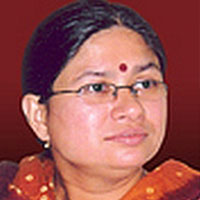In this article, Ashwini Kulkarni of NGO Pragati Abhiyan contends that the media should tap into the knowledge of practitioners that are familiar with the ground realities of social sector schemes – rather than those outside the sector - with regard to budget-related and other discussions on the sector. This will help provide the masses with a real picture of the developmental problems plaguing the economy.
Everyone has a stake in the state of the economy. Whether we are voting in an election or making decisions that would affect the welfare of our families, we cannot help but be influenced by our perception that is largely based on what we read in the press or hear on TV. In this age of mass communication, the media wields vast power to shape mass perception and as a consequence, impact political and social outcomes. I would like to reflect here on whether the media could improve upon their present practices, which seldom dig deep enough to give us a real feel for what is really going on.
Consider the issue of the social sector. Poverty alleviation schemes like MNREGA (Mahatma Gandhi National Rural Employment Guarantee Act) or PDS (Public Distribution System) crucially affect the low-income groups who are also perhaps the least capable of sorting out fact from fiction in the news. Yet, time and again what we get to see are commentaries from pundits who are typically corporate bigwigs, political party representatives, and a sprinkling of academics or public intellectuals who have 'profound' things to say about almost everything. It is almost never people who are working at the grassroots and know the nitty-gritty at the ground level. Most of us, ordinary folks, would rather know how well a certain scheme is working rather than its impact on the fiscal deficit.
If I am asked to applaud the government for MNREGA, should I not have to know if the scheme is working well? Who are the beneficiaries, how do beneficiaries grade the programme, what are the bottlenecks in its delivery mechanism, and many such issues. The same is true for scores of programmes meant for primary healthcare, primary education, pensions, livelihood, and so on. It is not enough to know what is the budget for public education; we need to know if the quality of education is improving. The NGO Pratham has studied this carefully and their Annual Survey of Education Report (ASER) is well known across the globe. Shouldn't parents of the millions of rural children in India be privy to ASER findings?
What is the popular perception about Swachh Bharat Abhiyan? Is it just a programme for constructing toilets? Does the construction of toilets lead to increase in the use of the toilets? What about the availability of water in the villages? Or take the example of the widespread drought last year. How have the rural communities dealt with it? Was the budget allocation for drought mitigation programmes sufficient? There are many who have spent decades working on one or more of these programmes.
There are many civil society organisations that track budget and performance of the various schemes of the government. They analyse the problem, examine the present schemes, and contribute to the policy discourse. They know exactly where the shoe pinches. The media should tap into their knowledge and disseminate it.
Interestingly, none of them venture into commentary on the banking sector or the MSME (Micro, Small and Medium Enterprises) sector or the corporate taxes, while the corporate bigwigs routinely indulge in making sweeping statements on budget announcements related to the social sector.
It is time that media takes note of the social sector more seriously, indulge in a discourse which gives depth to the development problems plaguing our country, and give due respect to individuals and organisations who have studied the ground reality, the policies, and their implementation. Otherwise discussions on budget will sound like discussions about our other national pastimes – cricket, Bollywood, and elections!




 19 May, 2017
19 May, 2017 




Comments will be held for moderation. Your contact information will not be made public.